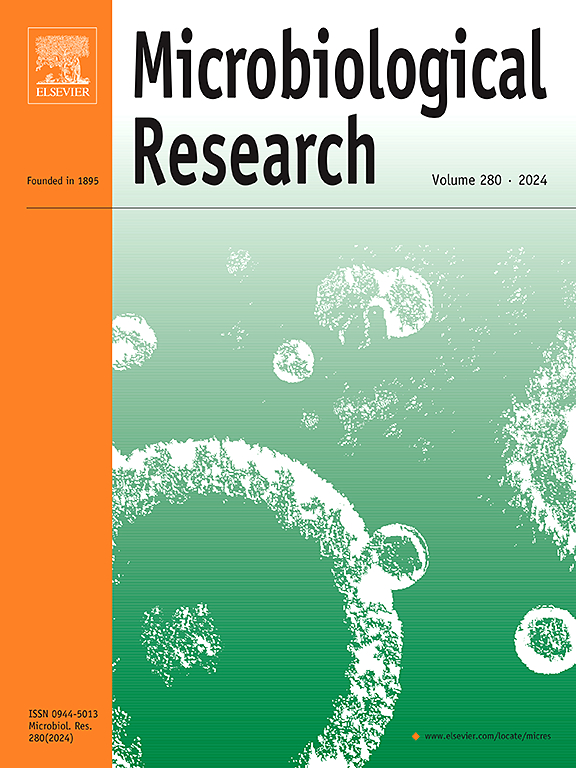重新审视耐药肺炎克雷伯菌感染的治疗选择:噬菌体治疗是关键
IF 6.1
1区 生物学
Q1 MICROBIOLOGY
引用次数: 0
摘要
耐多药和耐碳青霉烯高毒肺炎克雷伯菌菌株正以惊人的速度在全球蔓延,成为对全球公共卫生最严重的威胁之一。当前抗菌剂武器库带来的巨大挑战突出表明迫切需要新的战略来对抗肺炎克雷伯菌感染。本综述首先全面分析了肺炎克雷伯菌毒力因子的全球传播和关键耐药概况,然后评估了临床治疗肺炎克雷伯菌的新治疗方法的可及性。其中,噬菌体治疗在解决危及生命的肺炎克雷伯菌感染方面具有相当大的潜力。我们严格审查现有的临床前和临床证据支持噬菌体治疗,确定阻碍其更广泛的临床应用的关键限制。此外,我们严格探索基因工程在扩大肺炎克雷伯菌噬菌体宿主范围中的作用,并讨论该技术的未来发展轨迹。在“坏虫无药”时代,我们主张利用人工智能和深度学习来优化和扩大噬菌体治疗的应用,这是对抗肺炎克雷伯菌感染威胁的关键进展。本文章由计算机程序翻译,如有差异,请以英文原文为准。
Revisiting therapeutic options against resistant klebsiella pneumoniae infection: Phage therapy is key
Multi-drug resistant and carbapenem-resistant hypervirulent Klebsiella pneumoniae strains are spreading globally at an alarming rate, emerging as one of the most serious threats to global public health. The formidable challenges posed by the current arsenal of antimicrobials highlight the urgent need for novel strategies to combat K. pneumoniae infections. This review begins with a comprehensive analysis of the global dissemination of virulence factors and critical resistance profiles in K. pneumoniae, followed by an evaluation of the accessibility of novel therapeutic approaches for treating K. pneumoniae in clinical settings. Among these, phage therapy stands out for its considerable potential in addressing life-threatening K. pneumoniae infections. We critically examine the existing preclinical and clinical evidence supporting phage therapy, identifying key limitations that impede its broader clinical adoption. Additionally, we rigorously explore the role of genetic engineering in expanding the host range of K. pneumoniae phages, and discuss the future trajectory of this technology. In light of the 'Bad Bugs, No Drugs' era, we advocate leveraging artificial intelligence and deep learning to optimize and expand the application of phage therapy, representing a crucial advancement in the fight against the escalating threat of K. pneumoniae infections.
求助全文
通过发布文献求助,成功后即可免费获取论文全文。
去求助
来源期刊

Microbiological research
生物-微生物学
CiteScore
10.90
自引率
6.00%
发文量
249
审稿时长
29 days
期刊介绍:
Microbiological Research is devoted to publishing reports on prokaryotic and eukaryotic microorganisms such as yeasts, fungi, bacteria, archaea, and protozoa. Research on interactions between pathogenic microorganisms and their environment or hosts are also covered.
 求助内容:
求助内容: 应助结果提醒方式:
应助结果提醒方式:


